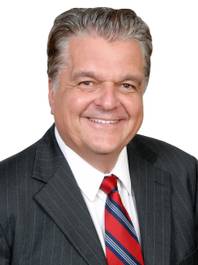Thursday, Sept. 17, 2009 | 2 a.m.

Steve Sisolak
Sun Archives
Sun Archives
- UMC’s bill collections baffle (7-1-2009)
- Grant to restore cancer programs at UMC (5-28-2009)
- Editorial: Possible relief for UMC (4-14-2009)
- Fighting for its life, UMC program loses patient (4-14-2009)
- Bill to open UMC cancer OK'd on party lines (4-9-2009)
- A black eye in medicine brings posturing, again (4-9-2009)
- UMC CEO: Bill to open cancer center doesn't address funding (4-8-2009)
- State measure could force closure of UMC, county says (3-31-2009)
- UMC might benefit from a hospital taxing district (1-18-2009)
Patients who either have no Social Security numbers or refused to provide them to University Medical Center failed to pay $114.3 million in bills from the public hospital last year.
Of that total, said Kathy Silver, UMC’s CEO, the actual cost to taxpayers is about $33 million. The markup, hospital spokesman Rick Plummer said, is one way to help offset the costs of nonpaying patients.
“It may only cost $3 for that aspirin, but we have to charge $10 because the guy next to you isn’t paying,” he said.
The hospital reported the figures to commissioners this week. Commissioner Steve Sisolak asked for the report, wanting to know what taxpayers are paying for treatment of patients with no insurance and no Social Security numbers. He thought it would be a way to determine how much of UMC’s unpaid bills are attributable to illegal immigrants.
The report is expected to fuel discussion about the hospital’s fiscal hemorrhaging at the commissioners’ “mini-retreat” this afternoon.
But Silver cautioned that the report doesn’t really establish a grand total for the cost of treating illegal immigrants. She also isn’t sure the report can be that useful in crafting policy.
“This is far from scientific, because though we can make assumptions that those without Social Security numbers might be here illegally, we find some with Social Security numbers are not here legally either,” she explained. “Sometimes they are making up a number. Sometimes they are using someone else’s number, or they don’t give us a number because they are running from a bad past, credit-wise.”
Plus, the mission of the hospital is to provide health care, not to police legal status, Silver noted.
“Some people say: ‘Deport everybody.’ Well, we’re not in the business of deporting. We’re health care people. We take care of people. We’re not in law enforcement; that’s not our role.”
Silver said the hospital did collect roughly $1.2 million on bills charged to people who did not provide UMC with Social Security numbers. The hospital wrangled payments from an emergency Medicaid fund. That avenue is now closed because the Legislature cannibalized that money to shore up the state budget this year.
Sisolak said the UMC report is another puzzle piece for commissioners to consider as they try to figure out how to collect on bills. Commissioners learned this year the hospital was only able to collect about 0.6 percent of past-due billings totaling $459 million.
Unpaid medical care is a growing problem. The actual cost of that care in fiscal 2009 was $204 million, up from $160 million in fiscal 2008 and $146 million in fiscal 2007.
To attack those unpaid bills, Sisolak is considering a variety of ideas. For starters, he wants the county to look at working with Metro Police and federal agencies, including Immigration and Customs Enforcement, about verifying patients’ status after they’ve received medical care.
If a patient is later deported, whatever slim chance of collecting money from him will certainly be gone, but at least that person isn’t likely to rack up more bills at UMC, Sisolak said.
“I don’t claim to have all the answers, but I’m not afraid to ask the questions,” he said. “If it’s politically incorrect, I guess I’m stepping on myself. But we need to get a handle on this.”
He said he knows that “we can’t refuse service. We can’t ask if someone is a citizen. But that’s an awful lot of money ... The county simply cannot afford to keep providing non-life-or-death medical care to people who are not citizens.”
County Commission Chairman Rory Reid agrees with Sisolak that “county taxpayers just can’t keep bearing this burden,” but the son of the Senate majority leader also said this is ultimately an issue that will require a federal solution.
Silver agreed, noting that a federal mandate dictates that hospitals don’t ask for proof of citizenship. The 1985 Emergency Medical Treatment and Active Labor Act was enacted to prevent what was seen as a growing problem: hospitals refusing emergency medical treatment to those with no ability to pay.
The law also allows aggrieved patients to file civil lawsuits.
Silver also warned of a potential public health risk of bringing in immigration officials. What if someone with a contagious illness, such as swine flu, decides against emergency care out of fear of being deported?
“If people get the impression we’re going to have ICE in the emergency room, that’s a barrier,” she said.
The hospital’s financial future will depend largely upon changes the federal government makes to the health insurance industry. Silver said that whatever plan is enacted, she hopes the federal government doesn’t try to pay for it by gutting existing funding that offsets uninsured patient costs.
“Because no matter how many more people get health insurance, there will still be those who don’t have it,” she said.
And though the idea isn’t popular in the nation’s capital and has been ruled out by President Barack Obama, allowing illegal immigrants to buy into a plan might be an improvement, Silver said. At least that way “they would have insurance, they would be making payments.”

Join the Discussion:
Check this out for a full explanation of our conversion to the LiveFyre commenting system and instructions on how to sign up for an account.
Full comments policy